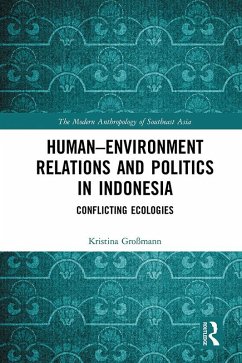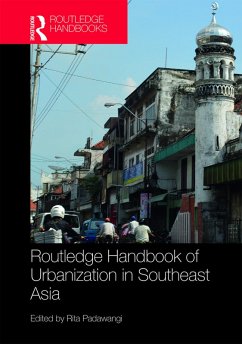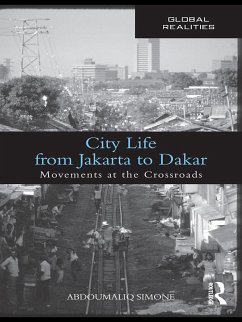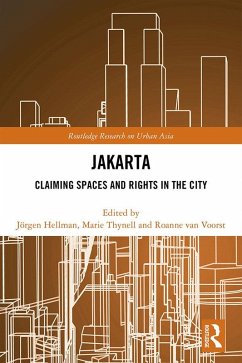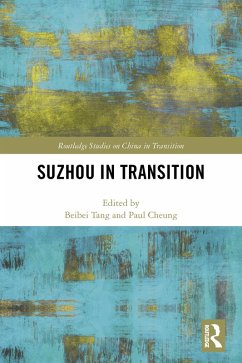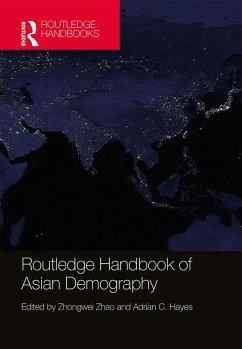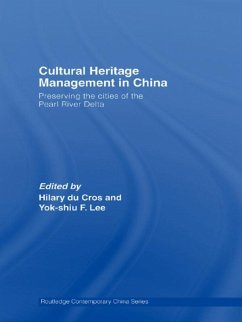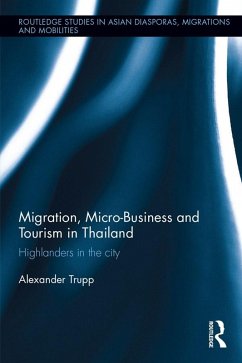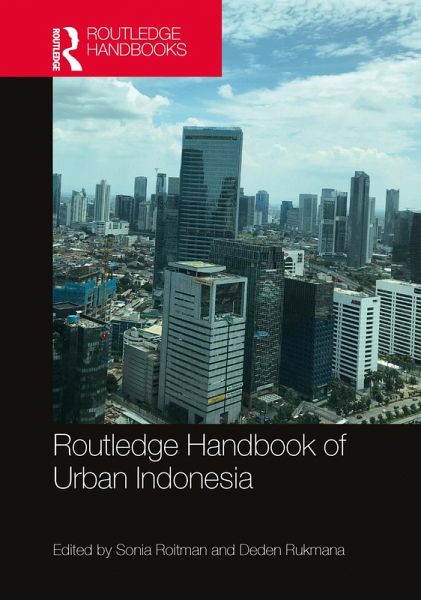
Routledge Handbook of Urban Indonesia (eBook, ePUB)
Versandkostenfrei!
Sofort per Download lieferbar
43,95 €
inkl. MwSt.
Weitere Ausgaben:

PAYBACK Punkte
22 °P sammeln!
This handbook focuses on the practices, initiatives, and innovations of urban planning in response to the rapid urbanisation in Indonesian cities.The book provides rigorous evidence of planning Indonesian cities of different sizes. Indonesia, the world's fourth most populous country, is increasingly urbanising. Through the lens of the Sustainable Development Goals, chapters examine specific policies and projects and analyse 19 cities, ranging from a megacity of over ten million residents to metropolitan cities, large cities, medium cities, and small cities in Indonesia. The handbook provides a...
This handbook focuses on the practices, initiatives, and innovations of urban planning in response to the rapid urbanisation in Indonesian cities.
The book provides rigorous evidence of planning Indonesian cities of different sizes. Indonesia, the world's fourth most populous country, is increasingly urbanising. Through the lens of the Sustainable Development Goals, chapters examine specific policies and projects and analyse 19 cities, ranging from a megacity of over ten million residents to metropolitan cities, large cities, medium cities, and small cities in Indonesia. The handbook provides a diverse view of urban conditions in the country. Discussing current trends and challenges in urban planning and development in Indonesia, it covers a wide range of topics organised into five main themes: Indonesian planning context; informality, insurgency, and social inclusion; design, spatial, and economic practices; creative and innovative practices; and urban sustainability and resilience.
Written by 64 established and emerging scholars from Indonesia and overseas, this handbook is an invaluable resource to academics working on Urban Studies, Development Studies, Asian and Southeast Studies as well as to policy-makers in Indonesia and in other cities of the Global South.
The book provides rigorous evidence of planning Indonesian cities of different sizes. Indonesia, the world's fourth most populous country, is increasingly urbanising. Through the lens of the Sustainable Development Goals, chapters examine specific policies and projects and analyse 19 cities, ranging from a megacity of over ten million residents to metropolitan cities, large cities, medium cities, and small cities in Indonesia. The handbook provides a diverse view of urban conditions in the country. Discussing current trends and challenges in urban planning and development in Indonesia, it covers a wide range of topics organised into five main themes: Indonesian planning context; informality, insurgency, and social inclusion; design, spatial, and economic practices; creative and innovative practices; and urban sustainability and resilience.
Written by 64 established and emerging scholars from Indonesia and overseas, this handbook is an invaluable resource to academics working on Urban Studies, Development Studies, Asian and Southeast Studies as well as to policy-makers in Indonesia and in other cities of the Global South.
Dieser Download kann aus rechtlichen Gründen nur mit Rechnungsadresse in A, B, BG, CY, CZ, D, DK, EW, E, FIN, F, GR, HR, H, IRL, I, LT, L, LR, M, NL, PL, P, R, S, SLO, SK ausgeliefert werden.




